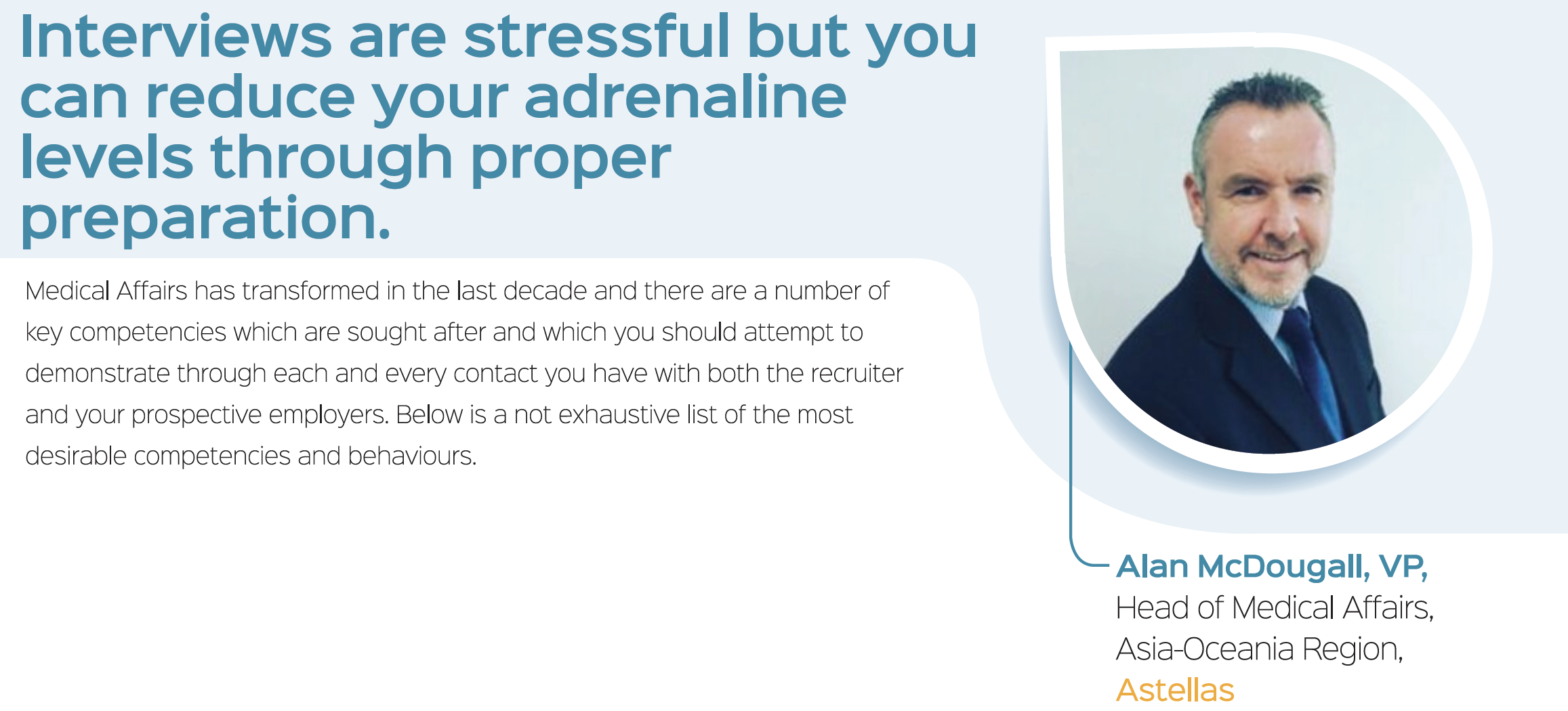How To Maximise Your Chances of Success at Interviews
By Alan McDougall, MD, VP, Head of Medical Affairs, Asia-Oceania Region, Astellas

Interviews are stressful but you can reduce your adrenaline levels through proper preparation. Medical Affairs has transformed in the last decade and there are a number of key competencies which are sought after and which you should attempt to demonstrate through each and every contact you have with both the recruiter and your prospective employers. Below is a not exhaustive list of the most desirable competencies and behaviours.
Communication
The ability to communicate clearly and effectively and through a variety of channels is essential for anyone working in medical affairs. Having a high level of knowledge but an inability to share it or teach it effectively is of little value. Communication also includes using appropriate body language, listening skills and the ability to provide feedback. Make sure every verbal or written contact you have with the company or the recruiter is carefully thought through and proof-read in the case of written contacts.


